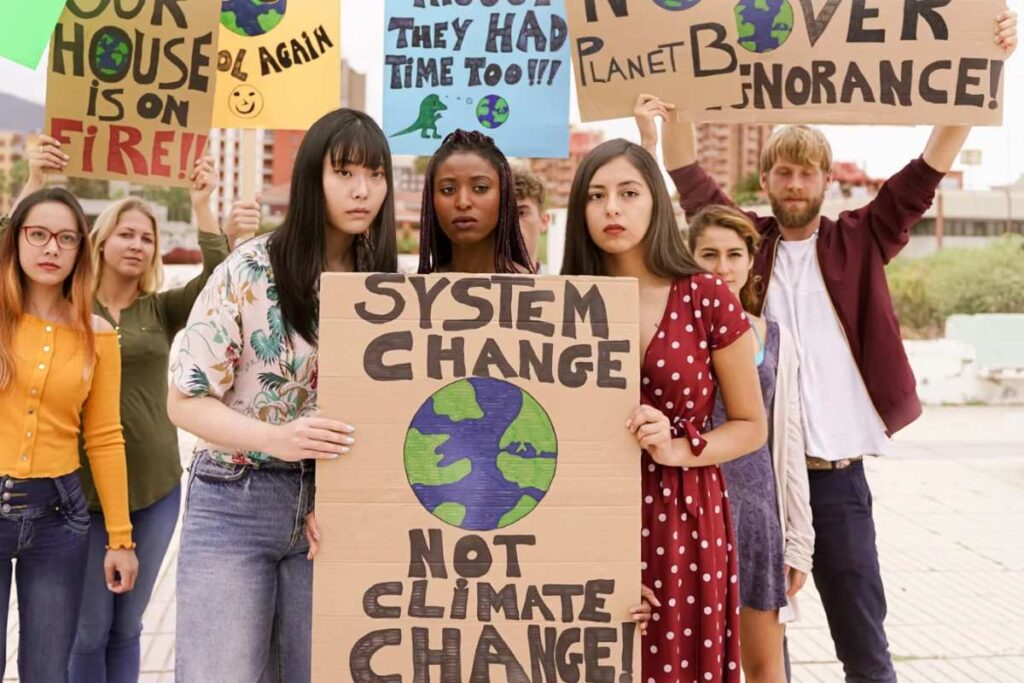Climate Change Education: A Vital Tool for Climate Action
Education plays a pivotal role in addressing the climate crisis, catalyzing behavior change, skill development, and innovation. These elements are crucial in combating the challenges posed by climate change. As individuals become better educated, they become more resilient and adaptable, making them better equipped to create and participate in green jobs. Their role is essential in driving solutions to one of humanity’s greatest challenges.
Despite its significance, climate change education is often overlooked in the climate agenda. A minuscule portion of climate finance is allocated to education. Redirecting more funds towards education could substantially enhance efforts in climate change mitigation and adaptation. However, climate change itself poses a significant threat to education. Millions of young people worldwide face disruptions in their learning due to climate-related events. This situation is particularly dire in low-income countries, where lost days of education can have long-term negative impacts on future earnings, productivity, and inequality both within and across nations.
Governments are urged to take proactive steps in adapting education systems to climate change. By doing so, they can ensure that future generations are better prepared to tackle the challenges of a changing climate.
Bridging Gaps through Education
The economic and human costs of climate change are immense, yet climate action remains sluggish due to gaps in information, skills, and knowledge. Education is the key to addressing these gaps and accelerating climate action globally. Education is the most significant predictor of climate-friendly behavior. Research shows that an additional year of education increases climate awareness by 8.6%. Moreover, education can empower young people with the green skills needed for new jobs, while also enhancing the skills required for existing roles.
However, education remains grossly underfunded in the climate financing sector. At the same time, climate change is severely impacting climate change education outcomes. Climate-related school closures are becoming more frequent, resulting in significant learning losses. Even when schools remain open, rising temperatures and other climate-related challenges hinder students’ ability to learn effectively.
Governments have the power to harness education as a tool for climate action by improving foundational and STEM (Science, Technology, Engineering, and Mathematics) skills, integrating climate education into curricula, and strengthening teacher capacity. Additionally, prioritizing green skilling and innovation in higher education can accelerate the transition to sustainable practices.
Choosing Our Future: Climate Change Education
The Importance of Green Skills
The report highlights four important aspects of green skills that policymakers and students should understand. First, green skills encompass a wide range of abilities, including technical, STEM, sector-specific, and non-technical skills, as well as socio-emotional and cross-sectoral competencies. Second, any job or industry can become more environmentally friendly with the right skill set. Third, these skills are not only relevant to new jobs but can also enhance existing ones. Finally, the demand for green skills can be unpredictable and unevenly distributed.
Climate change is increasing the frequency and intensity of extreme weather events such as heatwaves, floods, storms, and droughts. These climate shocks lead to widespread school closures, resulting in substantial learning losses. Despite their prevalence, climate-related school closures often go unnoticed because no one is monitoring them.
As climate-related disruptions continue to threaten education, governments and policymakers must recognize the critical role that education plays in climate action. By investing in education and equipping future generations with the skills they need, society can better navigate the challenges of a rapidly changing climate.
Also Read: Education’s Critical Role in Combating Climate Change

